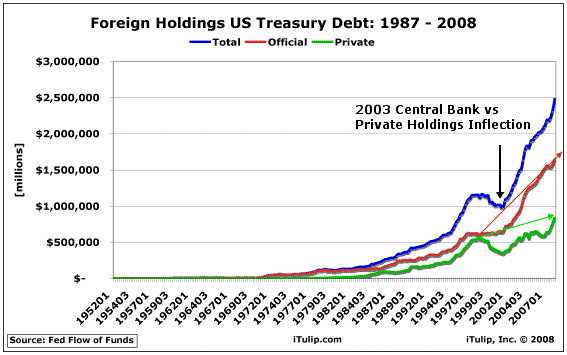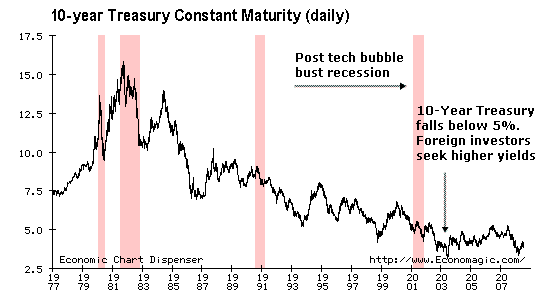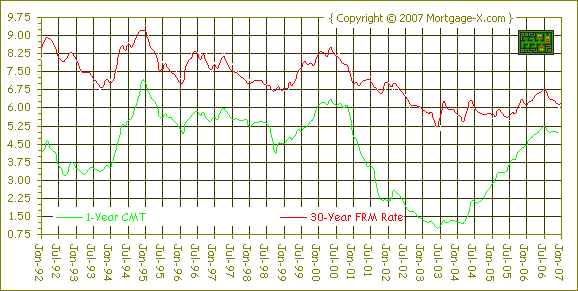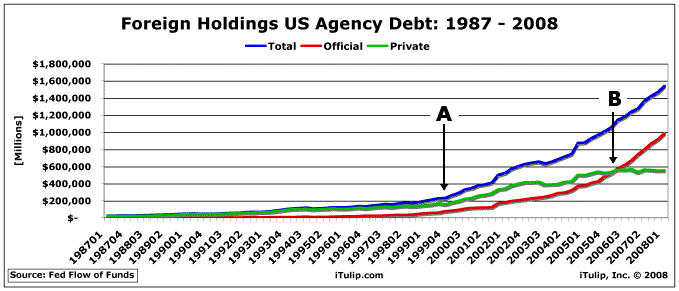http://www.cnbc.com/id/26603489
Watching the market roar back this morning after Feds step in to bail out Freddie Mae and Freddie Mac.
All I can say is that I will listen and nod my head about the necessary evil that this was but never again will I listen to "investors" and Republicans preach free market capitalism when the rest of us are making hard choices about priorities such as schools, environment, and health care. This problem was obviously coming at least three years ago if not longer and the party went on. This sets the president once again that more collective security comes through cronyism and not through healthy market choices. For forty years I listened to pin striped suits and white Republicans badmouth welfare mothers as "they took advantage of our collective humanity and won't get off their ass and work" and funny how these guys are the biggest welfare mothers of all, claiming "too-big-to-fail", and not excepting the judgment and outcome of the markets, and coming to little ol' me wanting me to bail out their asses. Even bail-out is a BS term here since I will see nothing for the sacrifice I will make. That used to be called stealing. Makes me want to puke.
http://www.cnbc.com/id/26603489
Watching the market roar back this morning after Feds step in to bail out Freddie Mae and Freddie Mac.
All I can say is that I will listen and nod my head about the necessary evil that this was but never again will I listen to "investors" and Republicans preach free market capitalism when the rest of us are making hard choices about priorities such as schools, environment, and health care. This problem was obviously coming at least three years ago if not longer and the party went on. This sets the president once again that more collective security comes through cronyism and not through healthy market choices. For forty years I listened to pin striped suits and white Republicans badmouth welfare mothers as "they took advantage of our collective humanity and won't get off their ass and work" and funny how these guys are the biggest welfare mothers of all, claiming "too-big-to-fail", and not excepting the judgment and outcome of the markets, and coming to little ol' me wanting me to bail out their asses. Even bail-out is a BS term here since I will see nothing for the sacrifice I will make. That used to be called stealing. Makes me want to puke.
http://www.cnbc.com/id/26603489
 and a dozen other books on banking and frequent writer for Barron’s Magazine, Institutional Investor, and others explains:
and a dozen other books on banking and frequent writer for Barron’s Magazine, Institutional Investor, and others explains:




Comment